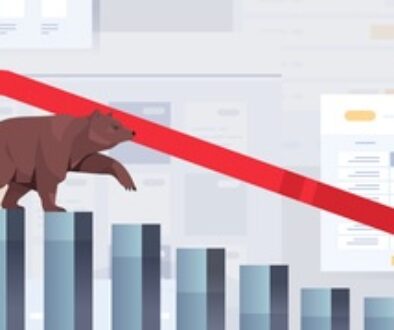Counting on Lady Luck?
Most people enjoy gambling more than calculating probabilities. They would rather spin a wheel or pull a lever than juggle statistical estimates. Click through for a wake-up call on this to make sure your sunset years are comfortable.
To start with, successful investing means a reliance on a mix of mathematical applications and other factors, like economic, political and industry analyses. On the flip side, gambling can mean either games of chance, such as roulette or slot machines, or tests of skill, like poker and blackjack. And speculation occupies an intermediate zone between the two.
The bottom line? Over the long run, prudent investing will make you richer, and gambling will make you poorer.
 Risk and uncertainty
Risk and uncertainty
Investing, speculation and gambling are all undertaken to make money. They may all also provide excitement and fun.
At one end of a continuum comes investing, which involves committing capital to buying assets expected to increase in value over time and provide returns, either through dividend income or capital gains. The assets might be stocks, bonds, mutual funds, ETFs, commodities, currencies or real estate. Sophisticated alternatives include private equity, derivatives, options and hedge funds.
Next, speculation straddles a space between investing and gambling. It requires taking a calculated risk when an outcome is uncertain. The expected return should be positive, although that may not pan out, and probabilities of loss could be significant. Speculators take risk with the realization that they may end up underwater. In general, the greater the risks, the higher the potential for gains, and vice versa.
Gambling, at the extreme end of the scale, means betting on an unknowable outcome dependent on luck. (Games of skill, of course, depend on the judgment or abilities of players, along with chance, and may involve psychological tactics like bluffing.) Gamblers bet on random events, with no reliable system to predict what is coming next.
Apples and oranges — not just slot machines
Gambling and investing do share some characteristics. Both activities involve risk and choice, and interestingly, human participation plays a role throughout. However, important distinctions separate the functions.
First, investing is predicated on ownership, whatever the asset. Gamblers who place bets own nothing but a pile of plastic chips with some redeemable value. Investors actually own a share of a business, or the right to receive interest and dividend flows.
Second, different time frames apply. Gambling is normally a short-term exercise, while investing typically contemplates a longer duration. Patience is a huge virtue for investors; gamblers seek instant gratification. Remember that the stock market always has a long-term upward bias, driven by technological advances and productivity.
In formal terms, the longer you invest, the lower the variance in your returns, so much so that eventually they should converge on a long-term market average. To put the idea simply, remember that gambling odds always favor the house. The longer you play, the higher those odds climb. Investors, by contrast, have time on their side, amplified by the benefits of compounding.
Third, gambling requires little information, whereas investing taps multiple sources to develop an edge, from research, analyst reports and annual reports to conference calls. Gamblers just get a copy of the rules.
Risk management
Gamblers’ only risk management is to walk away from the table. Investors, however, can mitigate risk by using stop losses, diversification or rebalancing. If you spread your portfolio among asset classes and geographies, when one investment is exposed to risk the others will dilute the impact.
Keep in mind that gambling is a zero-sum game, because either a fellow player or the house is always your opponent. However, many investors can all win at once, especially if they stick to their guns, control emotions and do not bail prematurely.
Today’s no-commission trading can blur the line between investing and gambling. Are you day trading or buying cult meme stocks with rollercoaster volatility?
We hope we’ve given you a lot to think about — and a lot of questions to ask about your situation. Work with qualified financial professionals to help get answers and to make sure you’re on a disciplined financial path.
©2023

